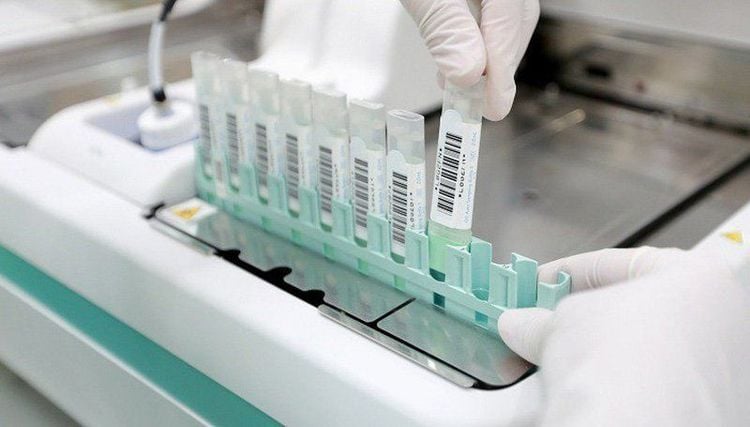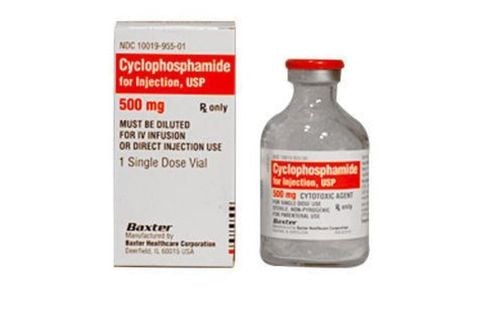This is an automatically translated article.
The article was written by doctors of Internal Oncology Department, Vinmec Times City International General Hospital.Before a new drug can be used, many years of research and testing are needed to ensure its effectiveness and safety. Studies that test new drugs on people are called clinical trials.
This type of study is also used to evaluate new approaches, such as combining surgery or radiation therapy with new drugs, in a newer way to treat disease. The research results will help improve the quality of life and increase the life expectancy of patients.
Clinical trials are required for every drug before it is approved by the US Food and Drug Administration (FDA).
1. Facts about clinical trials
Trials are done to evaluate the effectiveness of new treatments; Experiment to help determine which phase will work best; Trial participants can be patients with specific diseases or healthy volunteers; Testing is done on animals first, to determine safety.
2. Why clinical trials are needed?
Clinical trials to test new drugs, help determine which works best.
Thử nghiệm lâm sàng sử dụng để đánh giá các phương pháp mới
No treatment can cure all patients. Many treatments and drugs have side effects, so researchers are always looking for better ways to treat the disease.
Clinical trials are important to understand which drug, or procedure, is best for the patient and at what time.
Without results from clinical trials, new therapies will not be approved for use, as there is no evidence that they work better, faster or safer than other options .
3. How are clinical trials conducted?
Different organizations, agencies and companies can participate in a clinical trial. For example, a group of researchers doing research; funding comes from a public health agency, research organization or pharmaceutical company. The person who manages a clinical trial is called the principal investigator (PI), usually a medical doctor with extensive research experience.
PI leads the team of doctors, scientists, nurses, psychologists and other research professionals.
Experts will jointly design the clinical trial to analyze, interpret and present the results.
Each clinical trial has a master plan that includes the following information:
Who is eligible to participate? How many people will participate? Get what information? For example: blood or stool sample, tumor size, genetic testing... Details about the treatment plan?
4. Phases of clinical trials
Clinical trials include a series of steps called phases. Each phase aims to answer a specific question and improve understanding of the new treatment, before it is approved or recommended for use.
Thử nghiệm lâm sàng giúp xác định sự an toàn của thuốc
4.1 Phase 1 Clinical Trials The first studies in humans are called phase 1 trials. The purpose of the phase 1 trial is to determine the safety of the drug, but only a small number of healthy patients or volunteers participate. Phase 1 trials can help answer questions like what dosage is effective and what side effects may occur.
4.2 Phase 2 Clinical Trials Phase 2 trials have a larger number of patients. This phase focuses more specifically on seeing how well the treatment works in the patient. Phase 2 trials may look at specific situations or different groups of patients.
4.3 Phase 3 Clinical Trials Phase 3 trials involve a large number of patients. At this stage, researchers compare the effectiveness and safety of the new treatment with existing treatments; Phase 3 trials can demonstrate the benefit of a new drug over current treatments. The results can then be presented to regulatory authorities for marketing authorization. During each stage, the scientists will work to ensure that the results are not affected by bias. In other words, they want to make sure that the results they get are from the drug and not something else.
Some steps include:
Comparison groups: Participants are divided into groups so that the new drug can be compared with the old drug. Usually in both groups, the patients receive the classic treatment drugs, and then one group receives more of the studied drug while the other group receives the drug made to look like the study drug, also known as the drug. placebo (placebo).

Các thử nghiệm lâm sàng rất quan trọng giúp đánh giá loại thuốc nào là tốt nhất cho bệnh nhân
Random : Usually, which group to put a patient in will be randomly allocated by computer. This ensures that everyone is randomly assigned.
Concealment : The trial participants and the treatment people were not told who was on the new drug and who was on the placebo. This is called a "double-blind" test.
5. How do I participate in a clinical trial?
Participants are selected based on whether or not they meet specific criteria.
New treatments or treatment strategies need to be evaluated to see which are most effective in certain diseases or groups of people. So sometimes some people are invited or offered to participate in clinical trials.
If the selection requirements are met, a person is eligible to apply. Conditions will vary from trial to trial but are usually:
Stage of disease; Age; Other medications you are taking; Previous or existing illnesses; Complications, if any, from existing illness. The organizers will then provide more information about participation. This information will outline the risks and benefits that each person receives if they participate.
The benefits of participating in clinical trials may include costs. Some trials offer free drugs, services, or both to subscribers.
If the trial includes a cost, the amount will vary depending on the amount of details to be collected and the participant's time. For example, a study that requires participants to stay overnight will often pay more than one that requires only an hour or two.
Anyone deciding to participate in a clinical trial should ask for a clear explanation of the purpose of the trial and the role of each sponsor.
6. Protection of participants' interests
Before a clinical trial begins, doctors must clearly explain what they want to achieve from the trial.
They must present this to the Scientific Council and the Ethics Committee.
The review body must ensure that the trial is ethical, that the rights of participants are protected and that the highest standards of clinical practice are observed.

Trung tâm ung bướu - Bệnh viện Đa khoa Quốc tế Vinmec Times City là một trong những đơn vị tham gia thử nghiệm lâm sàng đa quốc gia
7. Has a clinical trial ever gone wrong?
Even the most ethical and carefully planned trials of new drugs for human use carry risks and sometimes go the wrong way.
To minimize the risk, the new drug will be tested on mice first, followed by human toxicity tests. Next, the product is usually tested in healthy volunteers, starting with a single dose and gradually increasing in quantity. If there are no problems, the volunteers will take multiple doses, increasing the dose before applying the product to the patient.
Each step is carefully planned and considered before the next step is taken. However, despite close supervision, clinical trials sometimes experience side effects or unwanted reactions.
New strategies, drugs, or new treatments may not provide any benefit, or may cause unwanted side effects. For this reason, the people taking the test must be sure they will be safe.
This is why clinical trials are so long and the rules for testing are so strict.
Clinical trials are important in improving and advancing medical care, to maximize effectiveness and minimize risks.
Oncology Center - Vinmec Times City International General Hospital was also selected as one of the participating units in a multinational clinical trial (many countries participate) because it meets the strict requirements of medical treatment. equipment and medical staff.
If you have any questions about the clinical trial at Vinmec Times City, please contact us via HOTLINE 0243 9743 556.













